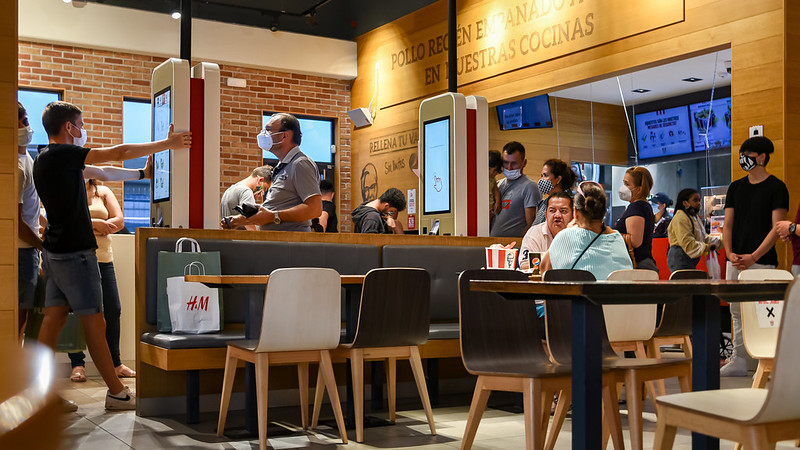Hospitality Update – House Bill 2513 and Self-Certification

It’s been another busy few days for the industry. Today’s hospitality update delves into what House Bill 2513 would and wouldn’t do, booking events with Governor Wolf’s restrictions still in limbo, and whether there’s personal liability attached to restaurant self-certification.
House Bill 2513
If you recall from my previous post, House Bill 2513 is the Bill that essentially reverses many of the Governor’s restrictions since July 15 (when he reduced restaurants to 25% capacity). Just to be clear on what this Bill does and doesn’t do:
IT DOES:
- Allow for a MINIMUM of 50% indoor seating, which can be increased if allowed by the CDC and Department of Health guidelines.
- Allow for 50% capacity for event venues (banquet halls, private clubs or other establishments that regularly hold events).
- Eliminate the self-certification requirement to operate at 50% capacity (More reason to hold off on completing this until October 5th).
- Eliminate the requirement to serve a meal along with alcohol.
- Allow for bar seating (provided social distancing or physical dividers are used).
- Provide for some additional flexibility to immediately license outdoor areas. Currently, the PLCB requires any outdoor area to be contiguous to the currently licensed premises for it to qualify for the PLCB’s emergency extension of premises. This Bill would allow for an outdoor area to be licensed if it is within 250 feet of the main licensed building.
IT DOES NOT:
- Remove the current requirement to cease all alcohol sales at 11 p.m. and clear all alcohol from tables by 12 a.m.
- Remove the restriction on having groups larger than 25 people indoors and 250 people outdoors. There is another bill pending in the legislature that would address this restriction. See below for more information on this issue.
Looking ahead, the Governor has threatened to veto the Bill. However, it passed with significant bipartisan support, which could mean the House and Senate would have enough votes to override the Governor’s veto. (They would need a two-thirds majority in each the House and Senate)
From what I have heard from those within the capital, many of the legislators who supported the Bill appear willing to continue their support, even to override a veto. Many legislators seem to recognize the very dire circumstances for those in the hospitality sector and acknowledge that this Bill, while not a magic solution, is at least a step in the right direction to help the industry.
Booking Events While the Constitutionality of the Governor’s Restrictions is In Limbo
Revisiting the decision by Judge William Stickman IV, you may have heard or read the reports that the Judge refused to stay or suspend the effectiveness of his decision until the Governor’s office resolves its appeal. I still believe the 3rd Circuit Court of Appeals may grant a stay. However, in the interim, it does appear that the PLCB/LCE recognizes that it will not be able to enforce the limits on the size of gatherings until something changes with the Courts.
Realistically, I think it would be hard to start booking events because the current status could change at any time if the 3rd Circuit grants a stay. Given that most events are booked well in advance, it is hard to rely on the current state of the law today and assume they it will remain that way tomorrow (let alone weeks or months from now). So if you decide to act on this and book large events, be aware that it could change at any time.
Personal Liability and Restaurant Self-Certification
Finally, even though I am recommending that you hold off on the self-certification process for right now, the website is up and running. The certification is available for review here. The process asks you to review this document and then complete the certification process, affirming that you will implement each of those requirements. It also asks you to input your maximum fire code occupancy. Before submitting, you must check a box indicating that the information you entered is accurate and warns you that false statements are punishable under the law.
I have heard a lot of people claim that they are “personally liable” for the certification, and that is not technically correct. The certification is asking you to affirm that the information you entered is correct. Theoretically, if you intentionally lied on this certification, you could be subject to punishment for making a false statement under oath.
With that said, it DOES NOT mean that any future violation or problem related to the operation of your establishment would result in some kind of personal liability.
Bottom Line
I am rooting for the eventual passage of House Bill 2513 to eliminate the self-certification process altogether. But, if that doesn’t get over the finish line, I would not refuse to complete the self-certification process simply because of the warning about false statements and potential punishment.
Obviously, you do not want to make false statements on the form. However, I am not significantly concerned that this is some trap the Government is setting to throw someone in jail for having too many people in their place of business.
